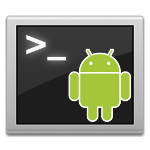
Quite often, however, I need to copy the captured image over to my computer. Usually, I do this with
adb pull command, but if I'm going to use CLI to retrieve the file, why don't I take the screen shot with it as well?One method is to use
screencap command via adb shell like so:adb shell screencap -p /sdcard/screen.png adb pull /sdcard/screen.png adb shell rm /sdcard/screen.png
Not bad, but seems like there's some room for improvement.
Information provided by
screencap -h indicates that screen shot can be sent to stdout, but running adb shell screencap -p > screen.png results in seemingly corrupt file.Luckily, I wasn't the first person looking into this issue. Apparently, adb shell is performing an EOL (end-of-line) character conversion, from LF (line feed, '\n', 0x0A) to CR+LF (carriage return followed by line feed, '\r\n', 0x0D0A).
If that sounds familiar, that's because I've dealt with this before. Unfortunately, this time we're working with binary data, so using
tr -d '\r' command to remove all 0x0D will likely corrupt it by also removing bytes that aren't part of the 0x0D0A sequence. We want to only remove carriage return characters when they are followed by a line feed.The solution is to use sed search and replace as follows:
adb shell screencap -p | sed 's/\r$//' > screen.png
Unfortunately, I found that sed fix while works on Ubuntu doesn't work on OS X. This solution using perl handles binary search and replace better:
adb shell screencap -p | perl -pe 's/\x0D\x0A/\x0A/g' > screen.png
Now we have a one-liner that grabs a screen shot from the Android device and stores directly on the computer executing the command. Beautiful.